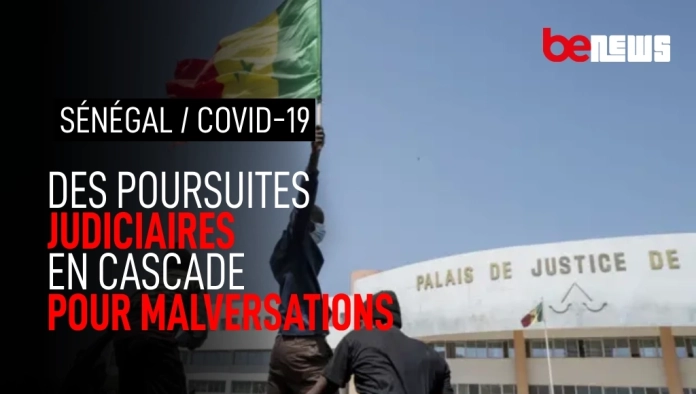In Senegal, the first major judicial repercussions linked to the management of Covid-19 funds are starting to bring down prominent figures. Five former ministers from the government of ex-president Macky Sall are now under judicial scrutiny, accused of serious mismanagement of resources mobilized for the health crisis response.
It all began with a report published in August 2022, while Macky Sall was still in office. The audit focused on the “Force-Covid-19” Fund—established to support sectors impacted by the pandemic—which had a budget exceeding 1,000 billion CFA francs (more than €1.5 billion). The fund was financed by public donations, government contributions, and international partners.
The Court of Auditors’ investigation uncovered significant irregularities: procurement procedure violations, missing documentation, massive cash withdrawals (up to 100 million CFA francs per day), overbilling, unjustified expenses (including floral arrangements and luxury cocktail events), and contracts for medical supplies awarded to companies with no relevant expertise. All of this occurred within a relaxed regulatory framework due to the emergency context.
Though the report was made public in 2022, no legal action was taken under the previous administration. Former President Macky Sall was accused of having “sat on” the explosive document. With the election of President Bassirou Diomaye Faye and the appointment of Prime Minister Ousmane Sonko, the case was finally handed over to the justice system. Investigations have been ongoing for the past seven months.
To date, 27 individuals have been arrested in direct connection with this case, with a total of 292 arrests recorded across all corruption-related investigations. Those involved include hospital directors, NGO officials, association leaders, and private sector contractors. The Senegalese judiciary is also reviewing additional reports from institutions such as the OFNAC (National Office for the Fight Against Fraud and Corruption).
Ministers Targeted but Still Shielded
The five former ministers under investigation can only be tried by the High Court of Justice, the special jurisdiction empowered to prosecute members of the government. Their case files have therefore been transferred to this body, which operates within the National Assembly.
No names have been officially disclosed, but the public is well aware of the ministries heavily involved in managing the Covid-19 funds—namely Health, Community Economy, and Infrastructure. Public calls are growing louder for these former ministers to be questioned—and for former President Macky Sall himself to be held accountable.
There is strong public pressure on the justice system. Initially, the national mood leaned toward looking ahead with a fresh governance approach. But as more revelations surfaced, demands for accountability intensified. Heated debates have erupted in the National Assembly, where some lawmakers are calling for immediate arrests.
The stakes are high: restoring trust in public institutions and proving that promises of transparency and a clean break from past practices are not empty words. Judicial oversight of some of the accused—with bail set at amounts equivalent to the misappropriated funds—has stirred public frustration, with many demanding harsher measures.
Will Macky Sall Be Directly Involved?
The shadow of the former president looms over the case. Macky Sall, who personally oversaw food distribution efforts during the pandemic, has been accused by political figures—including MP Guy Marius Sagna—of having shielded the wrongdoers. The fact that he eliminated the position of Prime Minister at the time, concentrating power in his hands, has only fueled suspicion.
The possibility of the former president being summoned before the High Court of Justice is now being seriously considered. If it happens, it would mark a major turning point in Senegal’s contemporary political history.
Beyond the estimated 700 billion CFA francs allegedly embezzled, the real issues at stake are public sector practices, institutional integrity, and the culture of impunity. Some of the accused, in attempting to clear their names, have disclosed personal assets that could expose them to charges of illicit enrichment.


